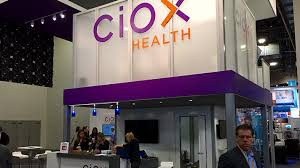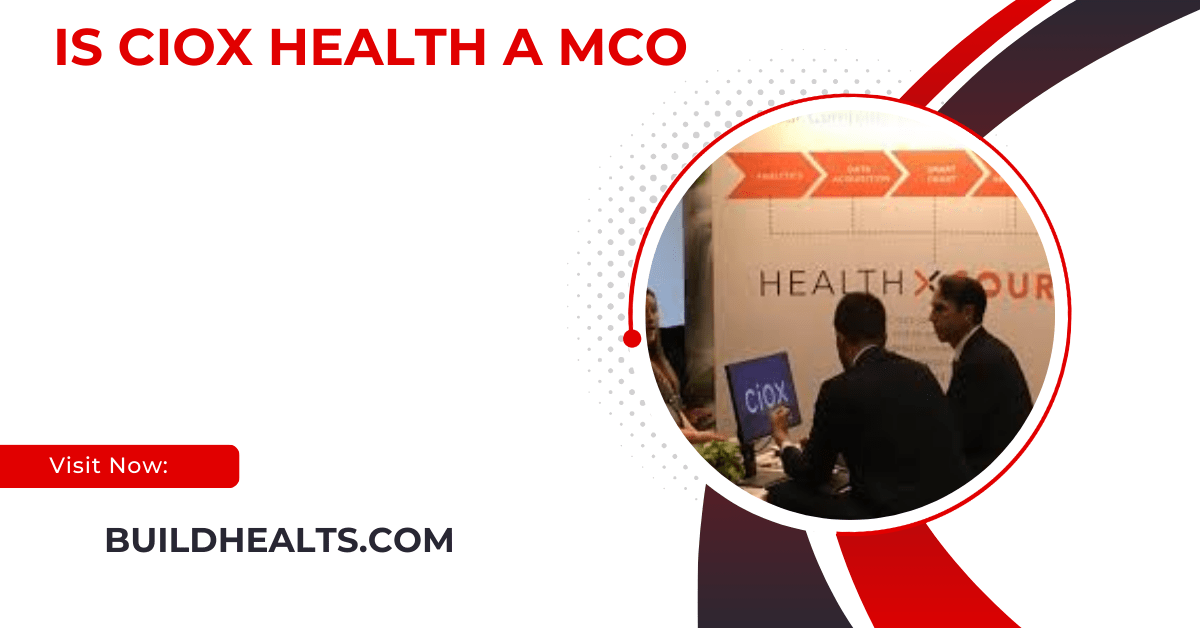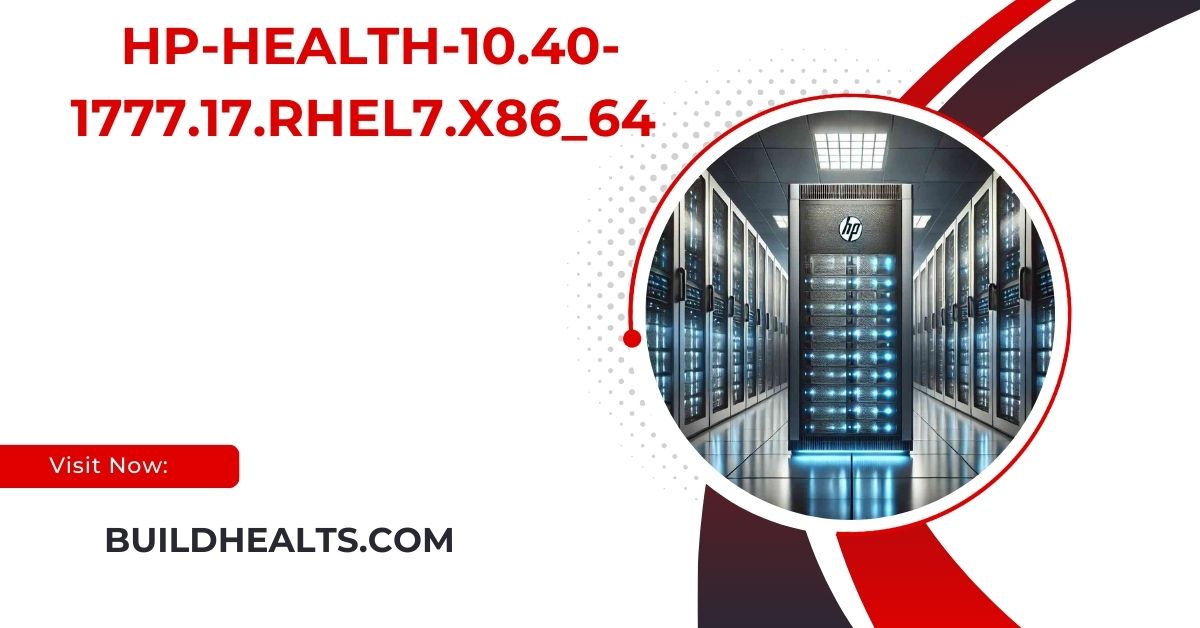Ciox Health is a health information management company that handles medical record exchange. Unlike MCOs, which manage healthcare services, Ciox focuses on data management.
Ciox Health is a significant player in the healthcare industry, particularly in the realm of health information management. There has been some confusion as to whether Ciox Health operates as an MCO (Managed Care Organization).
In this article, we will dive into what Ciox Health does, how it differs from an MCO, and why these two entities serve entirely different purposes in the healthcare ecosystem.
What is Ciox Health?

Ciox Health is a health technology company specializing in health information management (HIM). They provide services that help retrieve, manage, and securely exchange patient medical records. Their clientele includes healthcare providers, insurance companies, and patients, all of whom rely on Ciox Health to handle sensitive medical information.
Ciox Health plays a critical role in the healthcare information industry by ensuring the secure, compliant, and efficient exchange of medical data. The company facilitates the flow of medical records between hospitals, insurance companies, and other entities, supporting better healthcare delivery.
The Role of Ciox Health in Healthcare:
The healthcare industry has undergone a massive shift in recent years, with an increasing focus on digitizing patient records. This is where Ciox Health comes in, offering essential services that manage the flow of medical data in a compliant manner.
The healthcare information management (HIM) solutions offered by Ciox Health streamline processes, improve the quality of care, and reduce administrative burdens for healthcare providers.
The company has access to millions of medical records and helps connect hospitals, doctors, and other healthcare facilities with third-party entities like insurance companies and patients.
Key Services Provided by Ciox Health:
- Medical Record Retrieval: One of the main services that Ciox Health offers is the retrieval of patient medical records. This is especially useful for insurance companies that need access to a patient’s complete health history to process claims. Medical record retrieval is also essential for audits, legal purposes, and research.
- Health Information Exchange (HIE): Ciox Health acts as an intermediary in transferring health records between healthcare providers and third parties. This is known as Health Information Exchange (HIE). The company ensures the secure transmission of data in compliance with regulations like HIPAA (Health Insurance Portability and Accountability Act).
- Compliance and Legal Support: Ciox Health assists healthcare organizations in complying with complex legal and regulatory requirements, such as HIPAA. They provide audit support, legal compliance services, and help manage the release of information in a secure manner.
- Data Analytics and Insights: Beyond just retrieving and exchanging records, Ciox Health provides data management and analytics services. By using advanced technologies, the company helps healthcare organizations analyze patient data for research, improving patient care, and meeting quality standards.
Also read: Rockbridge Area Health Center – A Complete Guide!
Why Ciox Health is Important:
The importance of Ciox Health lies in its ability to streamline the often complex and time-consuming process of managing and exchanging health records. Accurate and timely access to medical records can significantly impact patient care, insurance processes, and even medical research. Some of the critical reasons Ciox Health is valuable in the healthcare landscape include:
- Efficiency: Healthcare providers and insurance companies can request and retrieve medical records in a fast, efficient manner, which improves service delivery and patient care.
- Data Security: In a world where patient privacy is paramount, Ciox Health ensures the secure exchange of sensitive medical data. Their strict compliance with HIPAA ensures patient information is protected.
- Cost Savings: By automating and streamlining the medical record retrieval process, Ciox Health helps reduce administrative overhead for healthcare organizations.
What is an MCO (Managed Care Organization)?

An MCO, or Managed Care Organization, is an entity that delivers health insurance coverage through contracts with healthcare providers. MCOs are focused on delivering cost-effective healthcare services to their members while maintaining high-quality care.
MCOs can take several forms, including Health Maintenance Organizations (HMOs), Preferred Provider Organizations (PPOs), and Point of Service (POS) plans. Each of these models functions differently, but they all work to manage the cost, utilization, and quality of healthcare services for their members.
Types of Managed Care Organizations (MCOs):
- Health Maintenance Organizations (HMOs): HMOs require members to use healthcare providers within a designated network. Members must choose a primary care physician (PCP), and all healthcare services must go through the PCP. HMOs tend to have lower costs but offer less flexibility.
- Preferred Provider Organizations (PPOs): PPOs offer more flexibility than HMOs. Members can see any healthcare provider they choose but will pay less if they use providers within the PPO network. PPOs generally cost more than HMOs but provide more freedom of choice.
- Point of Service (POS) Plans: POS plans combine aspects of both HMOs and PPOs. Like HMOs, POS plans require members to choose a primary care physician, but they also allow for the option to see out-of-network providers at higher costs, similar to PPOs.
The Main Functions of MCOs:
- Cost Control: MCOs negotiate contracts with healthcare providers to offer healthcare services at lower costs to their members. This is one of the primary roles of an MCO: to make healthcare more affordable while maintaining quality.
- Coordinated Care: MCOs emphasize coordination of care, often focusing on preventive care to reduce the need for expensive medical treatments. By managing care in a more organized way, they aim to improve patient outcomes and reduce costs.
- Provider Networks: MCOs work with healthcare providers to create networks of doctors, hospitals, and specialists. Members of the MCO are encouraged to use the providers within this network, where they can receive discounted services.
- Quality Assurance: MCOs monitor healthcare providers’ performance to ensure the quality of care. They may set specific quality benchmarks and require providers to meet certain standards in patient care and outcomes.
Is Ciox Health an MCO?
No, Ciox Health is not an MCO. The confusion may arise because both Ciox Health and MCOs operate within the healthcare industry and manage certain aspects of healthcare services. However, the core functions of Ciox Health and MCOs are vastly different.
Also read: Dentist In Enid Who Take Global Health Insurance – A Comprehensive Guide!
Key Differences Between Ciox Health and MCOs:
Core Business Model:
- Ciox Health focuses on managing health information, particularly the retrieval and exchange of medical records.
- MCOs, on the other hand, are focused on delivering healthcare services through managed care plans that emphasize cost control and coordinated care.
Services Provided:
- Ciox Health facilitates the secure exchange of medical records, helping healthcare providers, insurance companies, and patients access necessary information.
- MCOs managed healthcare services, creating networks of healthcare providers and overseeing the delivery of medical care to members.
Audience:
- Ciox Health primarily works with healthcare providers, insurance companies, and legal entities to handle medical records.
- MCOs directly serve individuals who are enrolled in their healthcare plans and manage healthcare providers within their networks.
Healthcare Delivery:
- Ciox Health has no role in the direct delivery of healthcare services.
- MCOs manage the actual provision of healthcare services, ensuring members receive the care they need from approved providers.
The Role of Ciox Health in Healthcare Management:

While Ciox Health is not an MCO, its role in the healthcare system is nonetheless crucial. By managing health records, Ciox Health ensures that patients, healthcare providers, and insurance companies can access the necessary medical information quickly and securely.
Without companies like Ciox Health, the healthcare system would struggle with inefficient and error-prone management of health data.
How Ciox Health Helps Healthcare Providers:
- Streamlined Processes: Ciox Health automates the medical record retrieval process, which reduces the administrative burden on healthcare providers.
- Improved Patient Care: With faster access to medical records, doctors and healthcare professionals can make quicker, more informed decisions about patient care.
- Legal Compliance: By ensuring that all health information exchanges comply with federal and state laws, Ciox Health protects healthcare providers from potential legal issues related to data breaches or non-compliance with privacy regulations.
FAQ’s
1. Is Ciox Health an MCO?
No, Ciox Health is not an MCO; it specializes in managing health information, not healthcare services.
2. What services does Ciox Health provide?
Ciox Health offers medical record retrieval, health information exchange, compliance support, and data analytics.
3. How does Ciox Health differ from an MCO?
Ciox Health focuses on medical record management, while MCOs manage healthcare service delivery through contracts with providers.
4. Who uses Ciox Health services?
Healthcare providers, insurance companies, and legal entities use Ciox Health for secure medical record management.
5. Why is Ciox Health important in healthcare?
Ciox Health ensures efficient, secure access to medical records, which supports better patient care and streamlined healthcare processes.
Conclusion
In summary, Ciox Health specializes in managing medical records, ensuring secure and efficient data exchange. Unlike MCOs, it doesn’t provide or coordinate healthcare services. Cox’s role is crucial for supporting healthcare processes, but it operates separately from patient care delivery.




